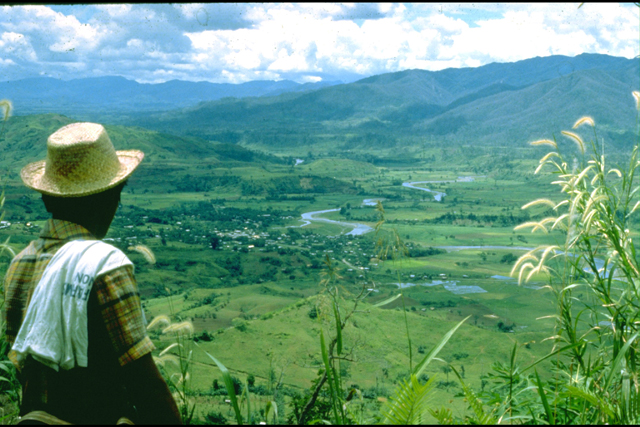Righting our relationships
Renewing the Earth
By Mark D. Hathaway
September 2000
Return to Table of Contents
Print Article
As people of faith, we see the whole of creation as the handiwork of God. Most of us experience the wonder of God as we walk through a forest, gaze out from a high place, or sit by the waterside. In our depths, we are aware that the greater community of creation sustains not only our bodies, but also in some way our spirits.
Jesus, too, seems to have experienced God in the midst of creation. He went out into the wilderness “with the wild beasts” for 40 days before beginning his active ministry, and every time the Gospels describe Jesus in prayer, he is once again outdoors. Jesus’ parables and teachings are full of metaphors drawn from nature: the birds, the lilies of the field, the mustard seed, the fish in the sea, and the cultivation of the soil.
Just as “God so loves the world,” we are called to love and care for the Earth and all its creatures. Yet, we are now living in a time of unprecedented ecological crisis. The entire balance of the intricate web of life that God created is being undermined, and this is happening as a result of human activity:
- In the past 50 years, humanity has released over 60,000 new chemicals into the air, water and soil. Most have never been tested for toxicity, but we do know that thousands of these substances are poisoning the processes that sustain all life.
- In the past 25 years, humans—particularly the wealthiest 20% who consume the bulk of the world’s resources—have used up about one-third of the Earth’s total natural wealth.
- In the past decade, we have experienced the warmest weather ever recorded. There is now a scientific consensus that greenhouse gases produced by humans are causing global warming and that average temperatures will rise by about 2°C over the next 50 years (and as much as 5°C to 10°C in Canada) provoking flooding and severe weather around the world.
- In the past year, between 20,000 and 100,000 species of plants and animals—each a unique expression of God’s creativity—have been lost forever. We are experiencing the greatest mass extinction since the disappearance of the dinosaurs 65 million years ago.
- In the past day, we have produced one million tons of hazardous waste.
- In the past hour, we have converted 30 square kilometres of productive land into desert.
- In the past minute, pesticide poisoning has killed 50 people.
- In the past second, we have destroyed an area of forest equivalent to a football field.
The ecological crisis we face is so severe that, in 1992, a group of more than 1600 scientists, including 102 Nobel laureates, issued a “Warning to Humanity”: “No more than one or a few decades remain before the chance to avert the threats we now confront will be lost, and the prospects for humanity immeasurably diminished...A new ethic is required—a new attitude towards discharging our responsibility for caring for ourselves and for the Earth.”
Return to Table of Contents
Print Article
